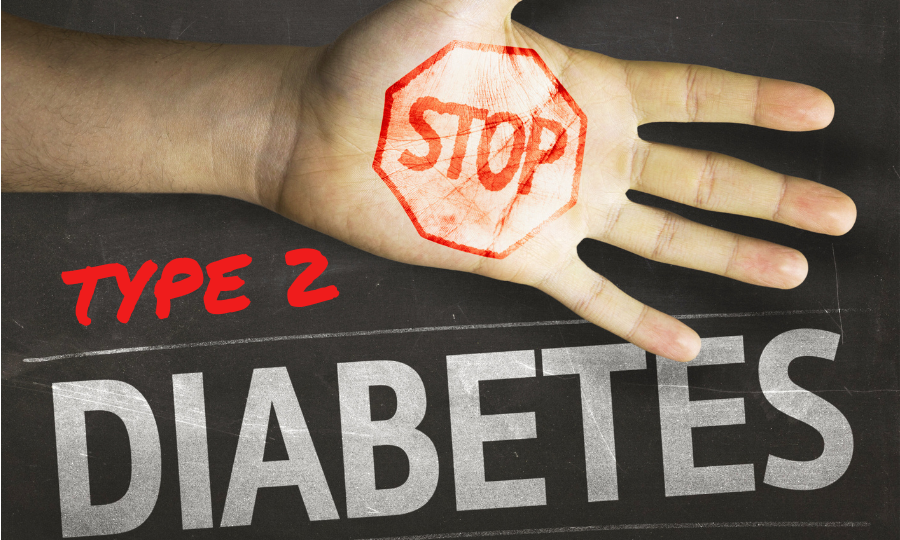Type 2 Diabetes and Sleep Apnea
NOVEMBER: Diabetes Awareness Month

You’ve probably heard sleep experts warn that sleeping less than seven or eight hours each night can have serious consequences on your physical and mental health. It's true! In fact, lack of quality sleep for a lengthy period of time can actually put you at risk of developing many serious medical conditions such as cardiovascular disease, high blood pressure, chronic heart failure, stroke, and type 2 diabetes.
According to a report by the Centers for Disease Control and Prevention (CDC), more than 100 million adults in the United States are living with prediabetes and type 2 diabetes. It’s no coincidence that seven in 10 people with type 2 diabetes also have a sleep disorder known as Obstructive Sleep Apnea (OSA) and the number continues to climb, affecting approximately 20 million American adults.
ARE YOU ARE RISK FOR DEVELOPING TYPE 2 DIABETES?
Researchers at the University of Hertfordshire uncovered a connection between poor sleep and an increased risk of prediabetic patients developing type 2 diabetes. The study shows that patients who reported poor quality of sleep tended to have higher blood sugar levels across a period of three months. When your blood sugar levels are elevated, you’re at risk for type 2 diabetes. This means that sleep apnea can actually increase your risk of developing full-blown diabetes by increasing your blood sugar levels, and prediabetic patients are even more susceptible!
The National Institutes of Health reports that about 80 percent of people with type 2 diabetes are overweight and, since research shows that sleep loss greatly increases your risk of obesity, there is a direct correlation. In addition to the clinical consequences and poor sleep quality, OSA causes daytime sleepiness, which typically results in lower energy and less desire to be active. Few people outside the sleep medicine community are aware that too little good sleep appears to be as much a factor in obesity as too much food and too little exercise.
WHAT IS SLEEP APNEA?
OSA is a dangerous condition that is characterized by episodes of complete or partial airway obstruction during sleep and can cause you to stop breathing up to hundreds of times per night. Each episode can sometimes last 10 seconds or more. The pauses in breathing can cause both drastic changes in your oxygen levels and frequent arousals that fragment your sleep. OSA can directly alter your glucose metabolism and promote insulin resistance.
In adults, the most common cause of obstructive sleep apnea is excess weight and obesity, which is associated with the soft tissue of the mouth and throat causing a narrowing of the airway.
CAN TREATING SLEEP APNEA CURE TYPE 2 DIABETES?
Type 2 diabetes is typically treated with medications or insulin, but it's extremely important that those affected watch their diet, exercise daily, and make sure they are getting quality sleep each night. Type 2 diabetes cannot be cured, but individuals can have glucose levels that return to non-diabetes range, (complete remission) or pre-diabetes glucose levels (partial remission).
The best way people with type 2 diabetes can achieve remission is by losing weight. Treating sleep apnea in diabetics helps to stabilize nighttime glucose levels and insulin sensitivity. A study from the University of Chicago showed that sleep apnea treatment may have as much of an effect as prescribed oral diabetes medications. For those with hypertension, evidence has shown that by treating obstructive sleep apnea patients’ blood pressure can be lowered as well, especially those with moderate to severe obstructive sleep apnea.
HOW IS SLEEP APNEA TREATED?
The treatment path for sleep apnea depends on your overall health and the severity. In cases where an underlying medical condition might be to blame, treating that condition is often the first step.
A common breathing therapy treatment that can help resolve issues related to sleep apnea and other breathing conditions is Continuous Positive Airway Pressure (CPAP). When CPAP is not an option, or you prefer a different approach, doctors who specialize in sleep dentistry, like those at Pennsylvania Dental Sleep Medicine, offer oral appliance therapy as an excellent alternative to CPAP.
HOW DO ORAL APPLIANCES TREAT SLEEP APNEA?
When a custom-fabricated device is worn in your mouth while you sleep, it is designed to help keep your airway open by adjusting the position of your lower jaw. Oral appliances are noninvasive, comfortable to wear, easy to maintain, covered by most major medical insurance plans, and convenient for traveling!
The first step is to talk with your primary care physician, ENT, pulmonologist, or any doctor who may be treating your health issues and request a sleep study to determine if sleep apnea is a factor. If you and your doctor decide that oral appliance therapy is the best treatment option for you, then click one of the links below to contact us.
Dr Becky Fox has achieved Diplomate Status with the American Board of Dental Sleep Medicine.
Blog Resources:
www.aasm.org
www.uchicagomedicine.org/conditions-services/sleep-disorders/sleep-apnea
www.sleepfoundation.org


